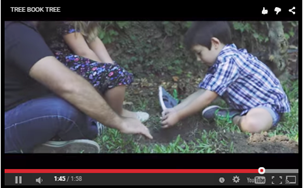 Bury This Book In The Ground And It Will Magically Come Back As A Tree (Fast Co.)
Bury This Book In The Ground And It Will Magically Come Back As A Tree (Fast Co.)
When kids finish reading a story about an adventure in the rainforest, they can plant the book in the ground. Eventually, the paper will sprout back into a mini-forest of jacaranda saplings.
The TeleRead Take: I suppose this is how you force people to buy a paper edition! I think this is a cool idea. A tree doesn’t just “grow in Brooklyn.” Still, I’d like more practical information about the details. For now, you can see a related video.
At BEA 2015, E-Books May Help Indie Authors Enter Publishing, But They’re Not Ready To Give Up Print Just Yet (Tech Times)
This sentiment was echoed by many indie authors at BEA this year. Though it might be a lengthier and more labor-intensive process, publishing on paper is still a priority.
The TeleRead Take: I beg to differ, personally. And the boatload of books I have sampled off of Kindle Unlimited during my brief membership seems to indicate that getting onto the Kindle store remains job number one. Perhaps the clinging to the print model is genre-specific?
The Mystery of the Hardy Boys and the Invisible Authors (The Atlantic)
Along with the Nancy Drew series, almost all of the thrillers in the popular teenage franchise were produced by ghostwriters, thanks to a business model that proved to be prescient.
The TeleRead Take: This is for anybody who still thinks James Patterson is blazing a trail. This fascinating cast study looks at the original ‘freelance factory’ model, as pioneered by The Hardy Boys
Examining The Mighty’s Success in Storytelling About Disabilities (Media Shift)
Porath’s experience working for ABC and NBC News, the New York Times, and other major news organizations on both the editorial and business sides equipped him to create a full media company from scratch.
The TeleRead Take: There is a good story here, in spite of the advertorial-esque tone. What made this story stand out to me was that Mike Porath actually has a media background, so he was equipped to edit and present the content to tell a real story. That’s probably what gave his blog such impressive numbers.
Kindle Daily Deal: First-In-Series Mysteries (and others)



















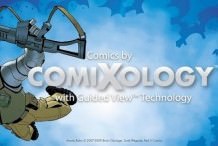
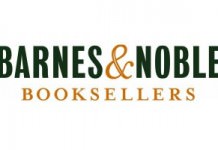
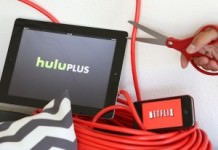
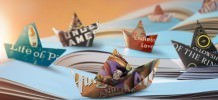
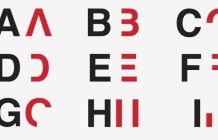










The jacaranda tree is tropical and wouldn’t survive anywhere in the continental US so that book is a remarkably stupid marketing ploy.
The reason that authors want to go to paper is readers. They want as many as they can get so the smartest thing an author can do is get as many ebook formats as possible, paper books, and audiobooks so they can reach anyone who would enjoy their book.
I suspect that the focus on print is because ebook sales aren’t overwhelming the marketplace. I know that for myself and several colleagues, our buying habits have changed. For example, since January 1 I have bought 42 hardcovers, 1 paperback, and 1 ebook (actually the ebook was free or I wouldn’t have bothered with it at all). This represents a significant change in buying habits for me. In past years, I would have bought many more ebooks by now.
Truth is that I am losing interest in reading ebooks. I find that I still prefer the print version. When I read a book that I think a friend would enjoy, I like being able to give them my copy — no restrictions.
A couple of my colleagues have closeted their Kindles. One stopped buying ebooks more than a year ago, reverting to buying only print books.
I think print and ebooks will coexist for decades. Some people prefer ebooks, some print. Some prefer whichever is cheaper. I also think it matters what type of book you read. eBooks are pretty good for fiction but really are terrible for heavily illustrated nonfiction. I have relegated my ebook readers to free fiction. Fiction that I pay for and all my nonfiction is print these days.